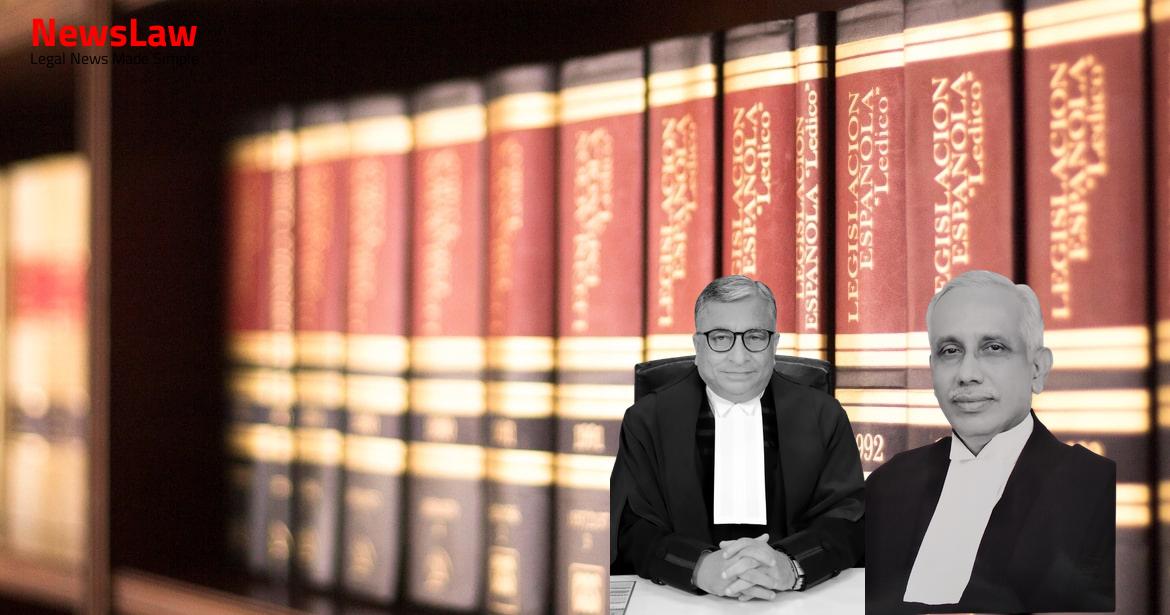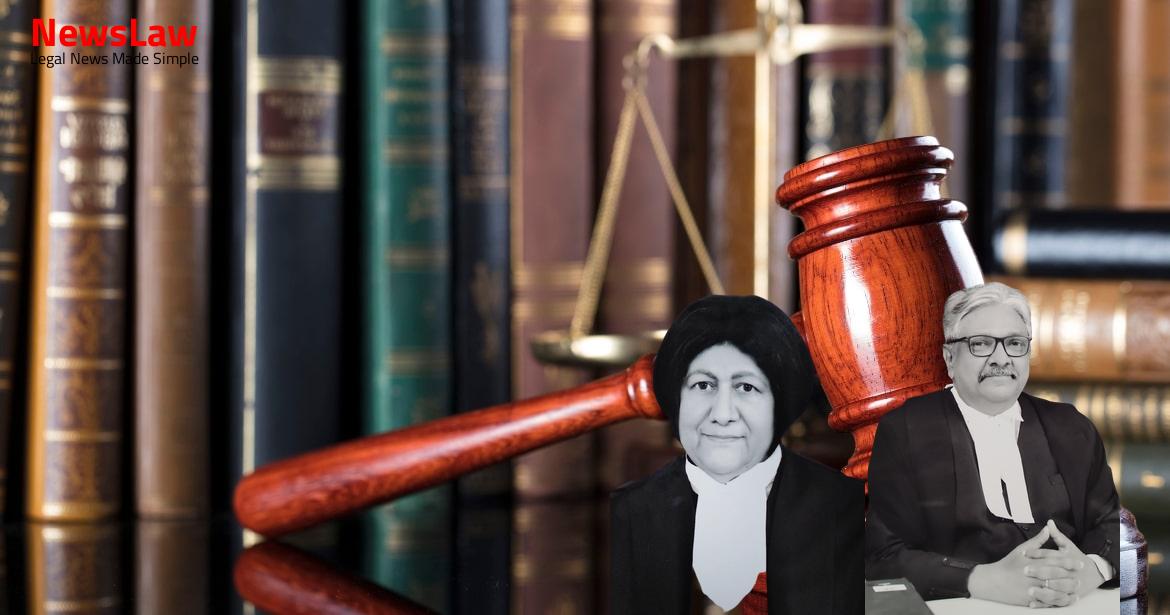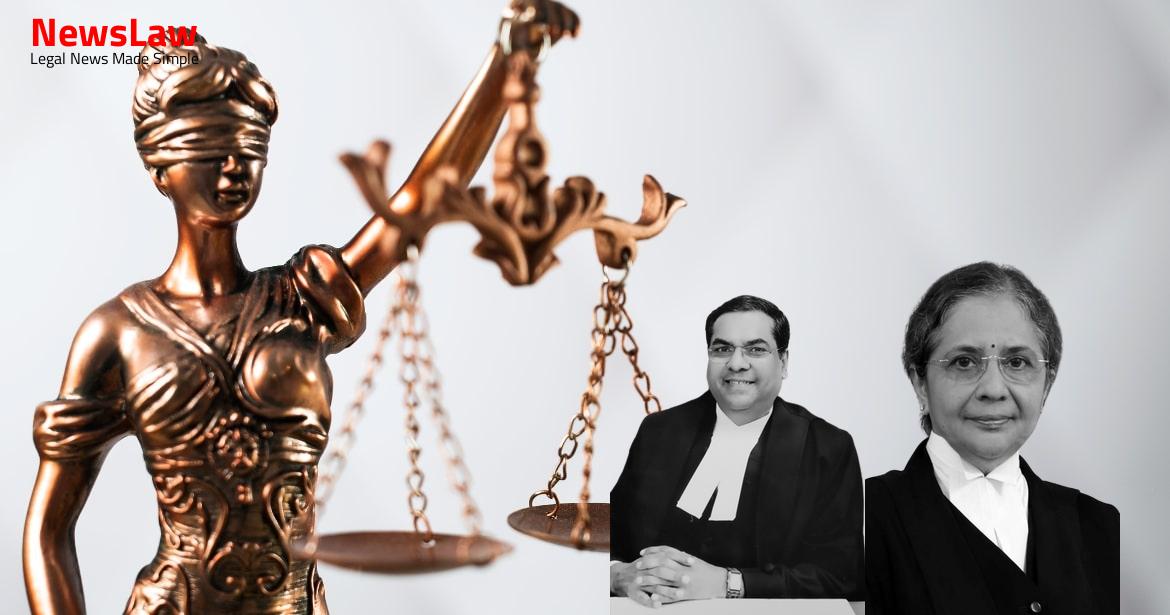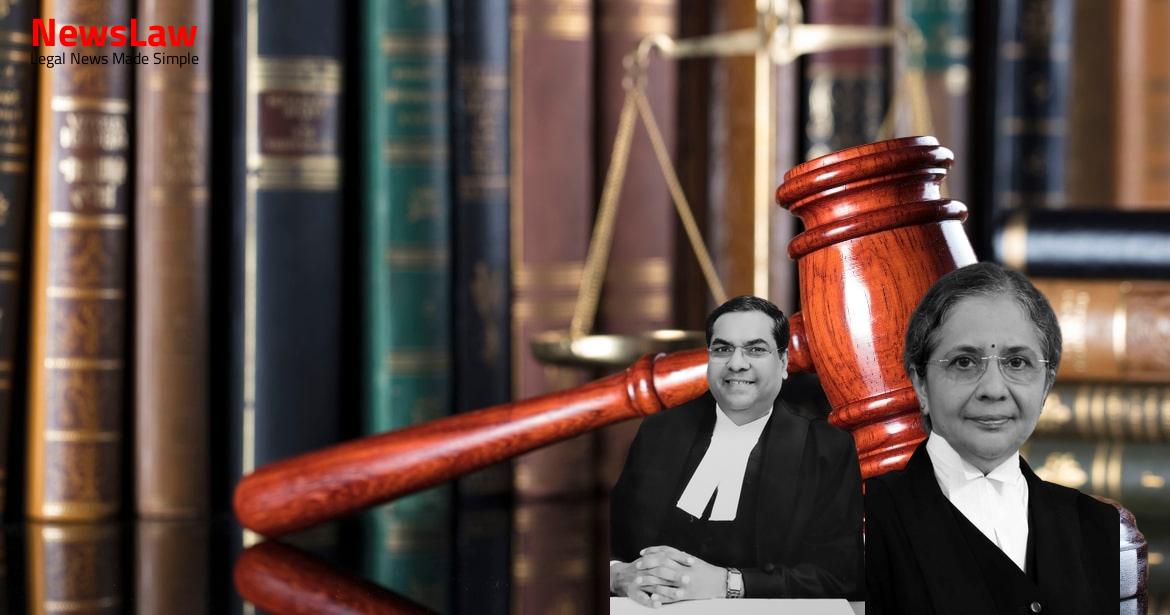In a recent legal case, the court emphasized the significance of legal analysis and upholding principles of natural justice. The decision highlighted the importance of fair procedures in ensuring justice is served. Let’s explore how the court’s thorough legal analysis ensured that due process was followed and fairness upheld throughout the proceedings.
Facts
- The report of the Disciplinary Committee was forwarded to the appellant and the complainant, with instructions to send written representations and appear before the Council if desired.
- The Council meetings scheduled for consideration of the report were adjourned multiple times at the appellant’s request.
- The Disciplinary Committee found the appellant guilty of professional and other misconduct involving two parties.
- The Council eventually accepted the Disciplinary Committee’s report and found the appellant guilty of ‘other misconduct’ under the Chartered Accountants Act.
- The Council recommended to the High Court the removal of the appellant’s name from the Register of Members for a period of two years.
- Subsequently, the High Court confirmed the Council’s decision and ordered a five-year removal.
- The appellant filed appeals and review petitions which were dismissed by the High Court.
- The High Court eventually ordered the permanent removal of the appellant’s name from the Register of Membership.
Also Read: Analysis of High Court’s Dismissal of Second Appeal
Arguments
- Appellant argued High Court should have set aside recommendations by Council due to violation of natural justice
- Appellant attacked report of the Disciplinary Committee as predetermined, perverse, and contrary to evidence
- Appellant challenges validity and correctness of High Court’s judgments and orders
- Argument that Council’s conclusion was based on conjectures and not beyond reasonable doubt
- Appellant objected to report of Disciplinary Committee without independent consideration of evidence by Council
- Council failed to appreciate materials, written submissions, and oral submissions by the appellant
- Reference to Council’s report and Section 21 of the Act
- Argument that Council’s opinion lacked guidance from the doctrine of benefit of doubt
- The respondent-Institute’s counsel argues for the dismissal of the appeals.
- The Council found the appellant guilty of misconduct based on the materials on record and the appellant’s written statements and submissions.
- The High Court upheld the Council’s recommendations and allowed the references.
- No errors were found in the report of the Disciplinary Committee or the Council’s order.
- The appellant cannot challenge the High Court’s judgment as there is no fault in it.
Also Read: Land Sale Agreement Appeal: Legal Consideration of Additional Evidence
Analysis
- Reasons for decisions ensure that the hearing is not a meaningless charade.
- Giving of reasons is necessary for fairness and justice.
- The power to find and record guilt of misconduct is vested in the entire Council.
- A reasoned decision is essential for justice and discipline.
- An unreasoned decision may appear unjust to the affected party.
- The Act requires the Council to forward findings with recommendations to the High Court.
- Findings must be based on evidence, not conjectures or surmises.
- The Council’s findings are final and form the foundation for any penalties imposed.
- The Council must independently consider explanations, evidence, and reports before making findings.
- Section 22-A allows a member to file an appeal against a penalty imposed by the Council.
- The procedure for an inquiry into misconduct of Institute members is outlined in the Act.
- If the Council determines a member is guilty of misconduct, it must follow the specified procedures.
- Penalties for misconduct include reprimand, temporary removal from the Register, or permanent removal.
- The Council has the power to recommend permanent removal from the Register to the High Court.
- The High Court can hear cases referred by the Council and impose penalties such as reprimand or permanent removal.
- The Council and Disciplinary Committee have powers similar to a civil court for inquiries.
- Regulation 13 outlines the procedure before the Disciplinary Committee.
- Regulations 14 and 15 deal with reports, findings, and procedures before the Council.
- The Disciplinary Committee’s conclusions are not final; only the Council can determine guilt.
- The Council must afford an opportunity for the member to be heard before passing any order for misconduct.
- The procedure for inquiries related to member misconduct is specified in Section 21 of the Act.
- The Council is required to independently consider the explanation submitted by the member and the evidence in the inquiry before the Disciplinary Committee.
- Failure to give reasons does not instill public confidence in the correctness of the decisions rendered by adjudicatory bodies.
- It is essential for judicial and quasi-judicial authorities to give reasons in support of their conclusions when exercising initial jurisdiction.
- Recording of a finding of guilt or non-guilt by the Council is mandatory for further actions.
- Appellant should be granted an opportunity to be heard by the Council.
- The Council needs to reconsider the matter afresh.
- The High Court erred in accepting the Council’s recommendations without applying its own logic.
Also Read: Legal Analysis in Compensation Appeal Case
Decision
- Pending applications disposed of.
- Parties directed to bear their respective costs.
- Orders of the High Court set aside.
- All contentions of parties left open.
- Council directed to consider and dispose of the matter(s) within three months.
- Matters remitted back to the Council for fresh consideration and disposal.
- Appeals allowed.
- Recommendations/orders passed by the Council of the Institute of Chartered Accountants of India set aside.
Case Title: D.K. AGRAWAL Vs. COUNCIL OF THE INSTITUTE OF CHARTERED ACCOUNTANTS OF INDIA (2021 INSC 535)
Case Number: C.A. No.-006337-006337 / 2021



